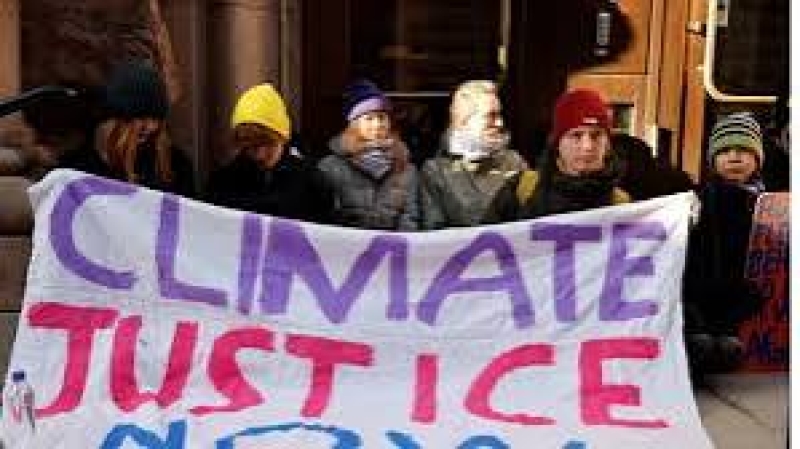- Yunus Urges Voters to Shape a ‘New Bangladesh’ |
- Bangladesh Polls: Campaign Ends as Voters Weigh Pledges |
- Bangladesh Heads to First Gen Z-Driven Competitive Poll |
- EC Lifts Mobile Phone Ban, Bars Photos Inside Booths |
- Youth participation vital to BD’s democratic future: C’wealth Group |
We cannot fight climate change without climate justice
The climate crisis is the fault of the early industrialization of a handful of nations

The battle against the ongoing global climate crisis is one that cannot be fought unless each and every nation stands united, and that unity cannot be ensured before climate justice is established.
While the developed world has, in the recent past, taken some cursory steps towards climate justice by, in agreeing to a loss and damage fund for example, the idea of climate reparations has yet to take root. A good case in point would be the Green Climate Fund (GCF) -- established within the framework of the United Nations Framework Convention on Climate Change, the fund’s objective is to assist developing economies with climate change adaptation and mitigation activities.
Despite the fund’s focus supposedly being on developing economies, according to Transparency International Bangladesh (TIB), it is quite clearly prioritizing international organizations over climate-vulnerable countries in granting funds, directly standing counter to its core principles.
In a recent TIB study, the watchdog group found that the fund’s conditions are far too stringent which all but bar developing countries from being able to access the necessary money. What’s especially damning is that the GCF has consistently failed in its mandate over the past 12 years, including inadequate fund collection from developed countries and the imposition of loans instead of grants on climate-vulnerable nations, reports DT.
It is simply ridiculous that a country such as Bangladesh, which has been left to fend off the ravages of climate change all by itself due to the unscrupulous callousness of developed nations and their historically unchecked industrialization, can only access this vital fund in the form of a loan and not a grant.
The climate crisis is the fault of the early industrialization of a handful of nations, and for those nations to now essentially classify a fund created ostensibly for the adaptation and mitigation efforts of vulnerable developing countries is nothing but a joke at our expense.
The world cannot fight climate change unless each and every nation is on the same page. But unless climate justice is ensured, even that is a distant possibility.

